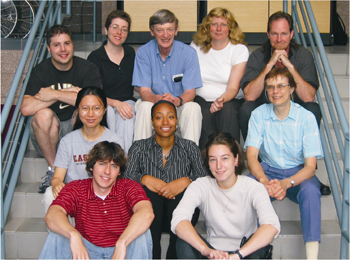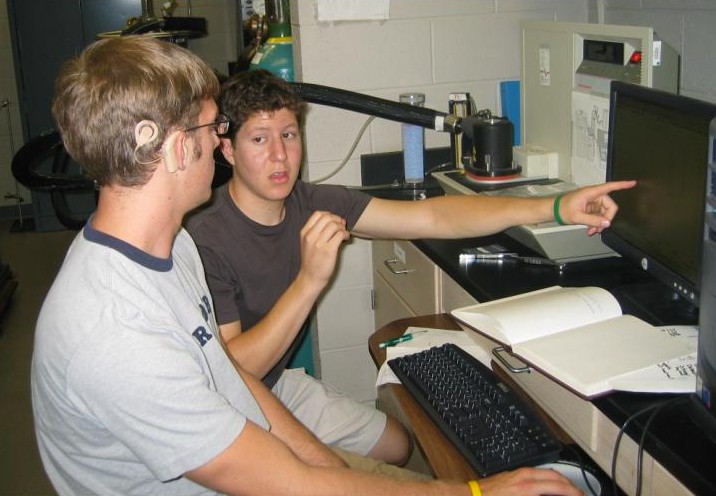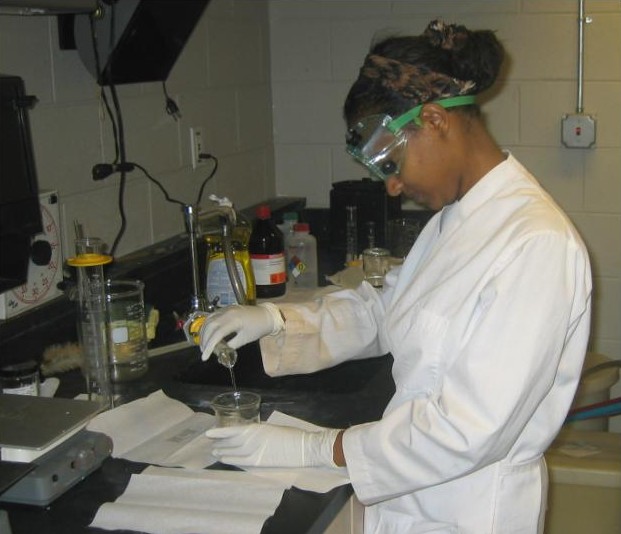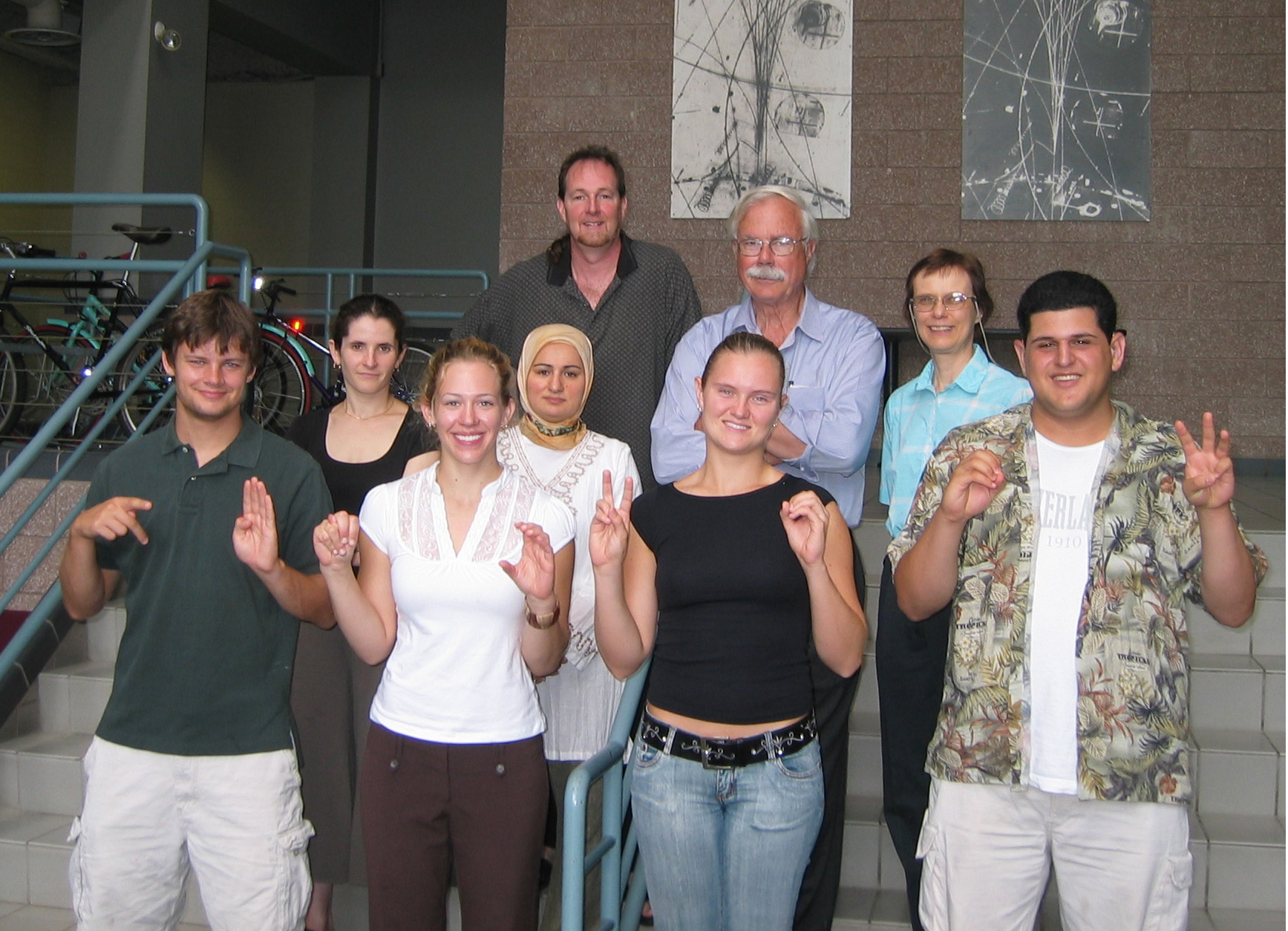|
The 2009-2011 research program: Polymer Blends for Fuel Cell Technologies
Interns made and characterized polymer blends, mixtures of two polymers, poly(vinylidene fluoride), PVDF,
and poly(4,5-vinyl imidizole), PVIm, protonated with a liquid ionic salt, for ultimate use as novel proton exchange
membranes for fuel cell technologies. They fabricated films, electro-spun fibers, and/or oriented tapes, and characterized
the structure and properties of the resulting materials. This research contributes to a fundamental understanding of the
effects of blend composition and thermal treatment on crystal structure of blends, and ultimately on the potential of these
new materials to serve as proton exchange membranes for hydrogen fuel cell technologies.
The 2013-2016 research program: Polymers for Advanced Technologies
For 2016, several projects are available to the Interns, including electrospun polymer fibers for guided growth of neurons,
and membranes for oil-water separation and provision of clean water. In 2013-2015, interns used electrospinning to create oriented nanoscopic fibers of poly(lactic acid)
and studied the impact of crystallization and/or addition of multiwalled carbon nanotubes to the fibers. These
fibers are biocompatible and biodegradable, and could be useful to help guide cortical neurons in their growth.
The internship comprises both classroom learning and laboratory exercises, all of which are taught by Tufts
University faculty. In the classroom portion, the students learn: 1. chemistry, physics, and engineering aspects of polymers
and blends; 2. scientific methods and how to conduct research; 3. communication skills, including scientific writing and making
group presentations. Professional interpreters are provided during the classroom sessions. In the laboratory portion, the
students gain hands-on experience in making, characterizing, and analyzing materials. Students work in small teams and learn to
operate the X-ray diffractometer, thermal calorimeter, infrared spectrometer, scanning electron microscope, and electro-spinning apparatus. The interns design
experiments, collect data, and analyze their results. The goal is to provide an enriching experience that will strengthen the
students' confidence to perform in a scientific and engineering environment. Follow this
link to see photos of the students presenting their research results at conferences.
How to apply for 2016 Internships
When: Tuesday July 5 – Friday August 12, 2016 (coinciding with the Second Summer Session at Tufts University)
Where: 574 Boston Avenue, Room 412 J, Tufts University, Medford, MA 02155
What is provided: The four selected interns will receive a stipend of $2700 for the six weeks,
and 0.5 credits from Tufts University. In addition, tuition for the 0.5 credits, registration fee, dormitory housing costs, and a small food
allowance will be provided to the four interns.
Interns must provide for their own travel to and from Tufts University in Medford, MA.
Moving-in day for dormitory housing is Sunday, July 3, 2016.
Applications: Prospective interns should send by e-mail: a resume, unofficial transcript,
statement of purpose, and one letter of recommendation from a faculty advisor/teacher to Prof. Peggy Cebe, peggy.cebe@tufts.edu. Deadline for receipt
of applications is February 15, 2016. However, students are encouraged to apply early, since acceptance will be on a competitive basis. Selected interns
will be notified no later than March 15, 2016.
This program is funded by the National
Science Foundation through the Polymers Program of the Division of
Materials Research, grant DMR-1206010, and formerly through DMR-0906455,
DMR-0704056,and DMR-0406127.
|



